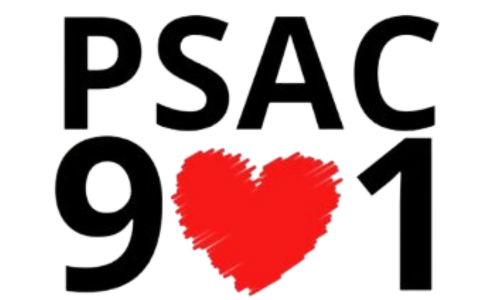What You Need to Know About
Potential PSAC 901 Job Action
Strike FAQ
What is a Strike? Why do we Strike?
A strike is a legal action taken by unionized workers when fair terms can’t be reached with the employer during collective bargaining. Going on strike is a collective decision to withhold labor, serving as a powerful tool to push for better terms.
In the event of a PSAC 901 strike, members would not be performing any duties related to their contracts. For example, if you’re a TA, this would mean not running tutorials, attending lectures, grading assignments, or holding office hours. Our non-particiation at work is our collective power to leverage for a better collective agreement.
Strike = a Loss of Income?
As grdauate students, our scholarships and Graduate Research Fellowships (GRFs) would remain unaffected by any job action. A potential PSAC 901 strike would mean withdrawing our contracted labour, so we would not our receive regular paycheques from Queen’s but other funds would remain unaffected.
Active PSAC 901 members who complete daily strike duties would be eligible for non-taxable Strike Pay of up to $84.79 per day to a maximum of $423.96 per week.
For members who need additional emergency support as a result of job action, a hardship defence fund will also be available.
Strike = Postponing Research Completion?
Your time to completion will not necessarily be impacted by a strike. We are withholding labor related to our employment contracts as Queen’s employees, not our individual research.
It is important to keep in mind the ways that graduate students contribute to the normal operations of the university, even outside of our contract duties. PSAC 901 encourages graduate students to discuss with their departmental colleagues how best to put further pressure on the university to come to a fair deal in the event of a strike.
Is it legal for me to strike as an International student?
Yes! Your rights to strike and assemble freely are protected by the Canadian Charter of Rights and Freedoms, along with the Ontario Labour Code.
Will a strike affect my study permit?
No. Your study permit is tied to your enrollment, not employment. According to the IRCC, you will not face penalities for participating in a strike, and you will remain eligible for off-campus work and the Post-Graduation Work Permit (PGWP) Program.
I need more information about the bargaining/strike progress!
To make sure the transparency during this round of bargaining, your bargaining team provides timely updates on the live bargaining tracker. Be sure to check our linktree for the latest events. Your bargaining team is hosting a bargaining town hall on February 5, where you can get all your questions answered!
What is a strike vote?
To strike or not is a democratic decision. A strike vote is conducted among unionized members to authorize a strike. It grants the union the authority to call a strike if and when such a step is necessary to reach an agreement.
What does voting “yes” for the strike vote mean?
If a majority of those voting say yes, it does not necessarily mean that we go on strike or halt negotiations immediately. By voting “Yes”, you are showing Queen’s that we are willing to withhold our labour if they don’t respond meaningfully.
Why are we having a strike mandate vote?
The Unit 1 Bargaining Team served Queen’s a Notice to Bargain on April 9, 2024, three weeks ahead of our contract expiring on April 30th. It took Queen’s 7 months to come to the table.
We have been in negotiations with Queen’s in order to renew the Collective Agreement since November 18, 2024, and the The Employer’s representatives continue to approach the table with unacceptable slow and underprepared responses. Our Bargaining Team has filed for conciliation, hoping to receive a response from Queen’s regarding numerous proposals.
This strike vote will empower the team with immediate leverage on the table, to negotiate our top bargaining priorities, including fair wages & funding, tuition minimization, access to affordable housing, paid time to learn course content, and an equitable funding/ labour balance.
